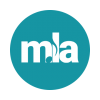On June 16th, the Copyright Claims Board (CCB) began their first proceedings. Created by the passage of the CASE Act in 2020, the CCB aims to resolve copyright disputes “of a relatively low economic value,” and will arbitrate copyright infringement claims of up to $30,000.
Libraries and archives have been granted an opportunity to pre-emptively opt-out of claims brought to the CCB. If a qualifying organization opts out, any copyright infringement claims would need to be filed in federal court. The MLA Legislation Committee recommends talking with your scholarly communication, copyright, or administration teams to inquire if your organization is opting out. The ARL Case Act Toolkit is a helpful resource for organizations who want to understand implications for libraries and archives under the law.
While libraries, archives, and their employees may pre-emptively opt-out, it’s important to know that there are members of our campus communities who will still be subject to claims brought to the CCB. This may include students, faculty, and non-library employees. The CASE Act Toolkit provides a helpful overview of how the CCB impacts different members of our communities.
The goal of the CCB is to make it easier for independent creators to defend their legitimate copyrights. However, there is some concern that the process still favors copyright-savvy rights holders, insufficient opportunity to appeal, and sets the bar for proof of harm too low. The Legislation Committee strongly recommends all MLA members familiarize themselves with the ARL Case Act toolkit and understand their University’s opt-out status.
